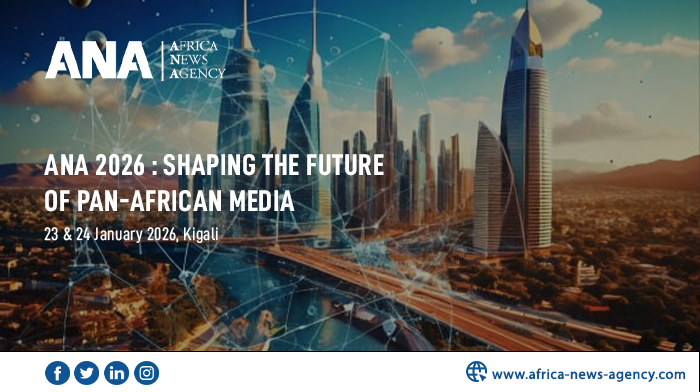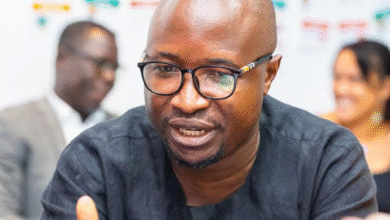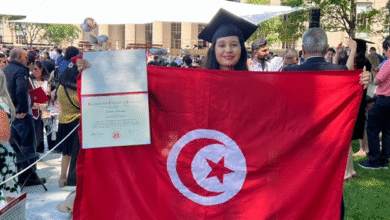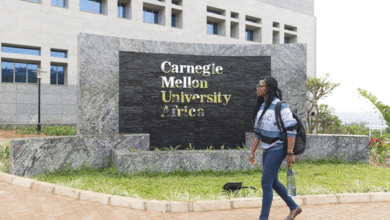Focus on 10 high-impact solutions
In Agritech, Edtech, and Fintech, Africa is witnessing the emergence of a multitude of impactful solutions. A tour of the horizon.
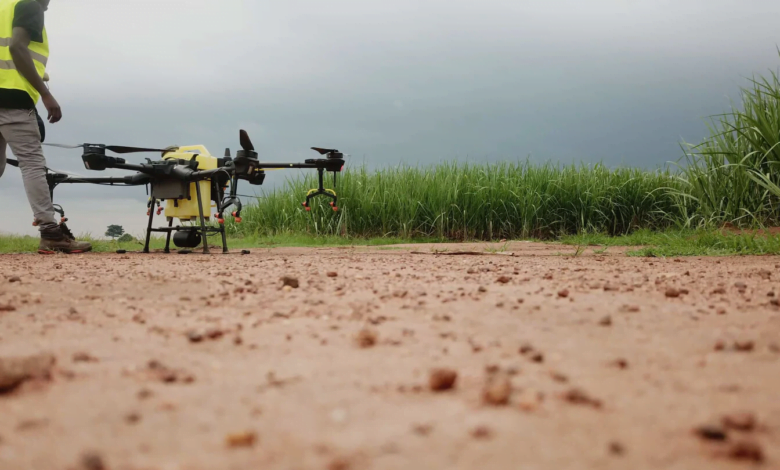
Investiv, Côte d’Ivoire
Investiv, founded in 2017, is a pioneering company in the use of drones for precision agriculture in West Africa. “We offer innovative technical solutions, enabling our partners to improve their productivity and better manage their resources,” says young Ivorian entrepreneur Aboubacar Karim. The initial idea is simple: combine agriculture and new technologies to increase agricultural income.
“Our services include precise land mapping, crop monitoring, and technical analyses to optimize agricultural projects. We help agribusinesses and cooperatives reduce losses and maximize their yields while offering training to strengthen local skills.”
Investiv aims to catalyze agricultural change in West Africa by integrating technology and expertise to create a sustainable and prosperous future for all.
Consize, Nigeria


The son of teachers, Kennedy Ekezie has always had a vision of making education accessible to all. After contributing to TikTok’s development strategy in Africa and co-creating Kippa, he launched Consize, a messaging-based learning management system that makes learning accessible by meeting learners where they are.
Consize aims to make learning accessible using messaging tools such as WhatsApp, SMS, Slack, and Microsoft Teams. Learners receive micro-training courses in 10 minutes per day.
“I believe that technology is not the solution. It must be combined with elements such as good teachers, learning infrastructure, and well-equipped schools. But I think technology is a catalyst,” he says. “It allows us to train people who would not have had access to training without technology.” For Kennedy Ekezie, the future is clear: “We want our product to work for banks, aerospace companies, hospitality companies that need to train their employees, organizations like the Red Cross, for example, that need to train their workers online. We want it to work for everyone,” without limiting it to Africa. “We are developing a platform for companies worldwide,” emphasizes Kennedy.
Sayna, Madagascar

Sayna, which means “intelligence” in Malagasy, founded by Matina Razafimahefa, is a playful online training platform offering three to six-month training in the form of video games. « First, it’s about learning digital culture. I assure you, it can be learned from a very young age, » assures Matina. « By searching on YouTube, I discovered new ways to use the web. » Step by step, Sayna raised 600,000 euros in funds from Launch Africa Venture, Orange Ventures, and the Malagasy investors club (MAIC). Her online school is accessible to everyone, without prerequisites, diplomas, or application files. Sayna has trained more than 5,000 people, offering paid micro-tasks to motivate learners.
Innov Invest, Côte d’Ivoire
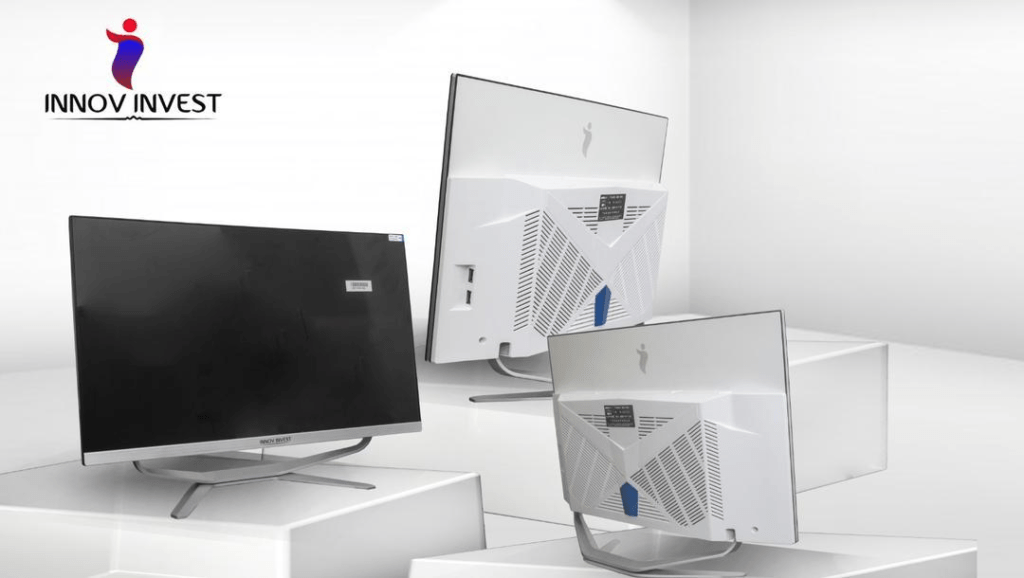
Innov Invest, a young Ivorian company founded by Soro Karim, is behind the design of the first 100% made in Côte d’Ivoire computer… or almost. Above all, these are computers adapted to Africa, both economically and ecologically. “Our computers have atypical features,” he explains. “Our ‘Made in Côte d’Ivoire’ computers are innovative and eco-responsible, adapted to African realities.” They integrate bilingual keyboards, African motifs, and autonomy of up to 14 hours. The soon-to-be-launched solar-powered prototype offers a solution adapted to African climatic needs. The product, 90% locally designed, is 60% cheaper and finds a market not only locally but also internationally, notably in London and Ghana, despite demand exceeding supply. “To increase production, funding is needed to move from a current capacity of 50 to 200-300 computers per month.”
Icosium, Algeria
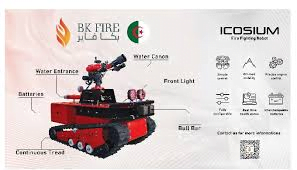
“I present to you Icosium, a robot that can extinguish fires. With a flow rate of 120 m³ at a pressure of 12 bars, we can extinguish fires at a distance of 80 meters.” Icosium, developed and manufactured in Algeria by BekaFire, aims to revolutionize firefighting in Africa. As climate change causing extreme heat led to devastating fires around the Mediterranean last summer, this invention aims to be lifesaving. “Our invention will save the world by protecting human life. We must do something for climate change, and our robot can replace firefighters to protect humans first,” explains its promoter Khaled Basta. The latter, a pure Algerian product and passionate about electronics, created his startup “BK Fire” in 2008, specializing in manufacturing protection and fire equipment, among which is Icosium.
Autochek, Nigeria
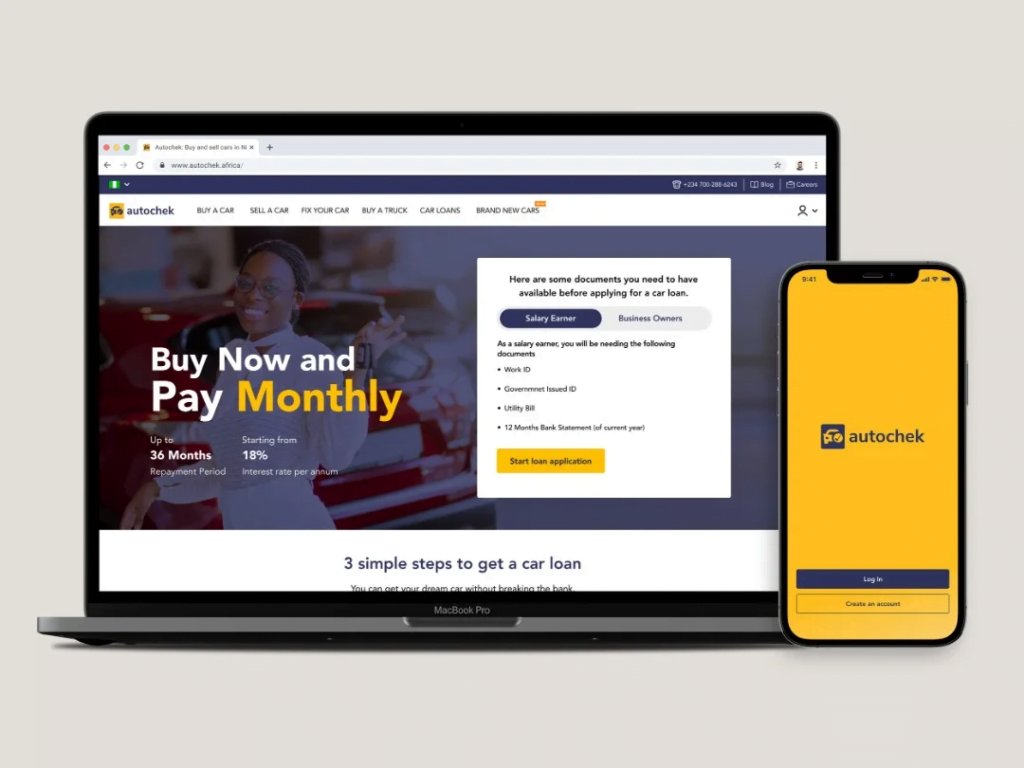
Autochek, an automotive technology platform founded in 2020 in Nigeria, facilitates online car financing on the continent. Mayokun Fadeyibi, the general manager, defends a pan-African vision: born in Nigeria, before expanding to nine other countries, the startup acquired shortly after its launch, the Cheki brand in Nigeria and Kenya, then in Uganda but also in Côte d’Ivoire, Senegal, and South Africa. Since then, the company has grown through other acquisitions such as Kifal Auto in Morocco and AutoTager in Egypt. It thus integrates the second largest market in Africa. “We have really grown and expanded across the continent through acquisitions.” The startup, active in ten countries, offers instant financing offers and maintenance services. “The markets are very similar… we have ensured that our product is very localized by market.”
Lamine Barro, Etudesk, Côte d’Ivoire

Etudesk is a pioneering e-learning platform since 2016. “We help companies adapt their training to digital,” explains Lamine Barro.
With a turnover of more than $400,000 and over 107,000 learners in 50 countries, Etudesk offers tailored training courses, promoting job creation.
“Digital is disrupting the job market,” notes Barro. In response, Etudesk offers specialized content, unavailable on public platforms. The platform also evolves with innovative features such as mobile access and mobile money integration.
“We address the mismatch between training and economic needs,” declares Barro. In partnership with the government and organizations, Etudesk contributes to introducing digital in education, thus anticipating future market needs.
Databeez, Senegal

Created in 2021, Databeez is a Senegalese startup based in Dakar, the first Pan-African Edtech exclusively dedicated to Data & Intelligence professions, Databeez establishes itself as a major player in data in EdTech. With a focus on training in Data Science, Data Engineering, and Data Analysis, the startup offers LMS and Big Data platforms, as well as a placement service for trained students. “Our program is deployed in France, with partnerships in discussion in Senegal, demonstrating our Pan-African ambition,” explain the co-founders, emphasizing the need for technological sovereignty for DataBase. With 300 people trained in 2023, Databeez aims for 1000 learners in 2024 and envisions large-scale deployment in 2025.
Monartisan, Côte d’Ivoire

“We want to build the largest skills band for informal trades in Africa,” says Kevin Sese, CEO of Monartisan. Since 2019, Monartisan has set itself the mission of transforming informal trades into a professional and transparent sector through technology. Today, Monartisan touches more than 2000 active artisans in three countries and has served more than 50,000 users. “We did a study and saw that our network of artisans saw their incomes grow by at least 32%. So, we bring income to these artisans who struggle to emerge and make ends meet.” While attracting young people to these undervalued trades.
HerVest, Nigeria

HerVest is a fintech dedicated to women that offers targeted savings and impact investment opportunities. “We also provide loans/credits to low-income women such as farmers and traders,” explains Solape Akinpelu, founder of HerVest. This Nigerian specialized in marketing and finance was born for entrepreneurship. “I used to buy candies and biscuits with my pocket money to resell at school.” After a decade of experience in marketing communications, particularly with financial brands, she launched HerVest in 2020. “I wanted to use technology to solve financial inclusion issues and reduce the digital gender gap. Today, we reach thousands of women in Africa, promoting financial inclusion and economic empowerment.”
Read the complete version in our ANAMag special Tech



